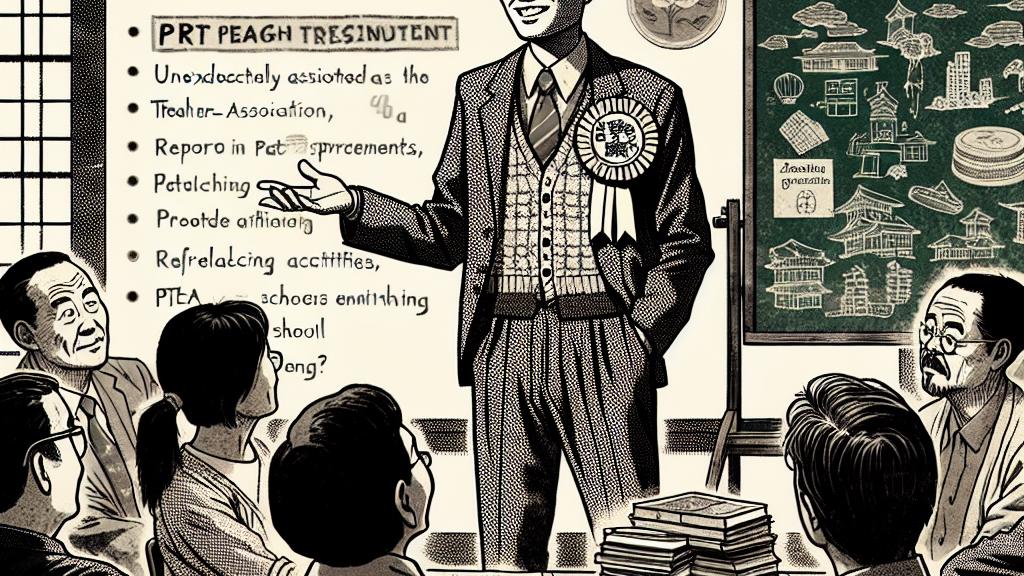Taking Control: Becoming PTA President to Reform School Events
Overview
- A daring parent embraces the role of PTA president, poised to lead transformative changes.
- Commits to abolishing unnecessary school events, reinvigorating community engagement.
- Aims to establish a space where parental involvement is empowering and enjoyable.

Facing the PTA Challenge in Japan
In Japan, the Parent-Teacher Association (PTA) often stands as a daunting obligation for many parents rather than a platform for collaboration. Recently, one outspoken parent took to Twitter, sharing their astonishment at being thrust into a PTA leadership position without prior agreement. Rather than resigning, this courageous individual embraced the title of PTA president—an unexpected turn that set the stage for an exciting journey of reform. Their bold promise to eliminate unnecessary school events—and focus on activities that enrich students' experiences—resonated with many. This commitment isn't just about cutting costs; it's about creating a PTA that genuinely benefits families and encourages authentic involvement.
Innovative Strategies for Engaging Parents
This parent's proactive stance reflects a broader frustration felt by many who find the traditional PTA structure overwhelming. A striking illustration of empowerment can be drawn from a specific school that, faced with a leadership crisis, opted to dissolve its PTA. They implemented a novel 'circle system,' which flips the conventional model on its head. Instead of mandatory participation, parents are invited to volunteer for specific roles they find meaningful. For example, while some parents may choose to lead a science club, others might volunteer for weekend community cleanup events. This flexibility transforms what was once a generic obligation into a personally rewarding experience. It fosters genuine connections and lets parents engage in ways that genuinely reflect their interests and values.
Shaping Sustainable Community Connections
Ultimately, the aspiration for this PTA reform goes beyond merely easing burdens; it seeks to cultivate an engaged and thriving community where parents feel pivotal to the school's success. By advocating for the cancellation of redundant activities, the PTA president envisions a collaborative organization that embraces the realities of modern family life. Picture a scenario where parents are encouraged to participate in weekend festivals or health fairs, rather than being pressured into weekday meetings that disrupt busy schedules. Such changes not only reinforce community bonds but also enhance the quality of parental involvement, making it both viable and meaningful. As this reform unfolds and captures the hearts of many, it underscores the essential role of parents, leading to an educational environment that nurtures student development and joy.

Loading...